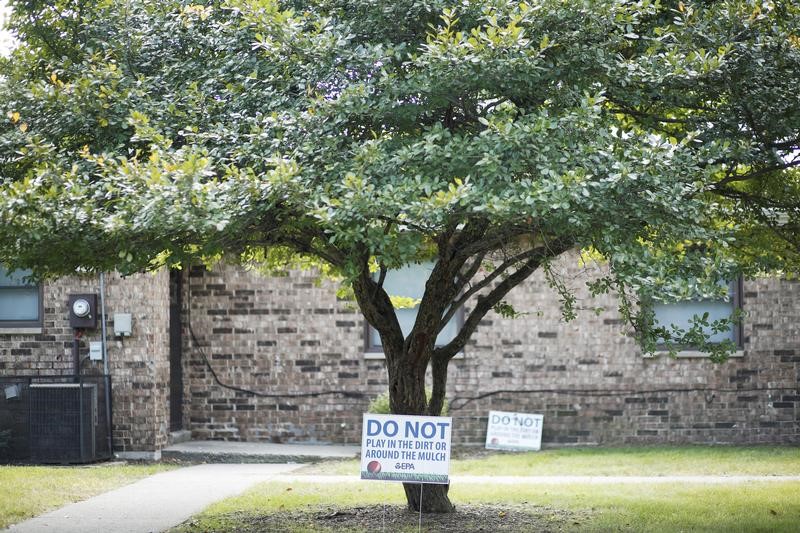By Timothy Gardner
WASHINGTON (Reuters) - The Environmental Protection Agency has told several lawmakers it aims to end late on Friday a freeze on grants and contracts that had been ordered by the White House, congressional aides said.
The freeze has led to widespread concerns in states and cities about whether there would be delays in efforts to monitor and clean up toxic pollution, particularly lead pollution in drinking water, that would put the health of Americans at risk.
The Trump administration on Monday asked the EPA to temporarily freeze grants, contracts and interagency agreements pending a review.
The EPA allocates $4 billion in contracts annually on projects ranging from cleaning up polluted industrial sites to testing of air and water quality.
The concerns were acute in Flint, Michigan, where children for years have been exposed to dangerous levels of lead in drinking water.
After Representative Dan Kildee, whose congressional district includes Flint, and Michigan's two U.S. senators wrote to President Donald Trump asking whether programs would be delayed, the EPA told them that grants to clean up the water would be uninterrupted. Congress last year approved $100 million to clean up water in Flint.
The EPA told some lawmakers it was continuing to award environmental program grants and revolving-loan fund grants to states and tribes and was "working quickly to address issues related to other categories of grants," aides said.
But Flint and other cities exposed to lead poisoning remain concerned about testing.
"The people of Flint also rely on other EPA contracts to conduct independent water testing and provide expertise when it comes to ensuring water quality," said Mitchell Rivard, a Kildee spokesman, who was waiting for news from the EPA and Trump about those programs.
An official from another Midwestern city that has suffered lead poisoning, speaking on condition of anonymity, said local politicians had asked the EPA if programs would be slowed but had received no answers.
A former EPA head of grants said the freeze was troubling because it showed a "total lack of communication about it with states, tribes and communities."

"They're supposed to be EPA's partners in keeping people safe and health, so they should have been consulted, or at least warned," said Karl Brooks, a former acting assistant administrator at the agency. If every polluted community has to push politicians to write letters to the EPA, the agency "will be spending most of its time answering congressional letters and not getting lead out of water or mercury out of our air," he said.